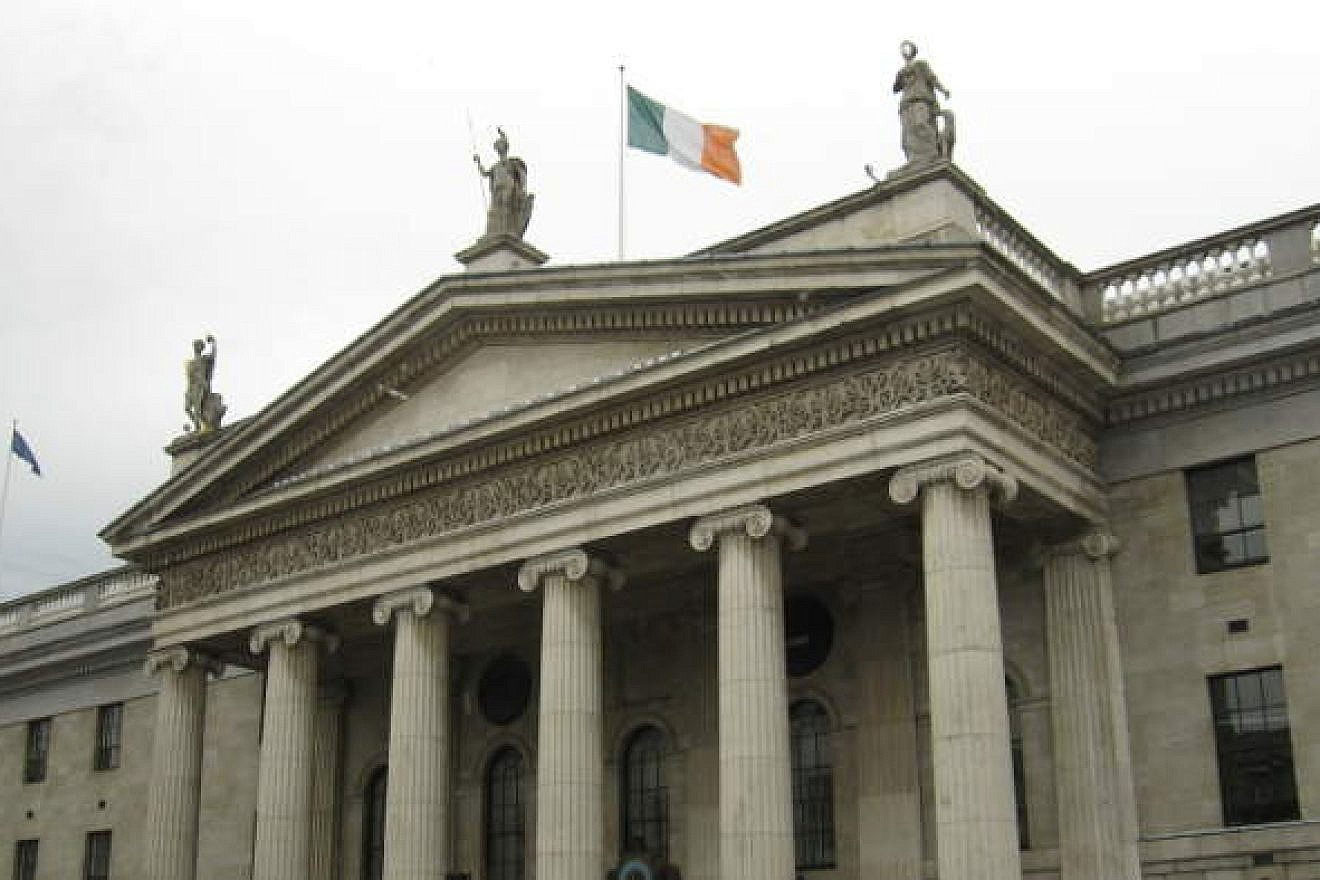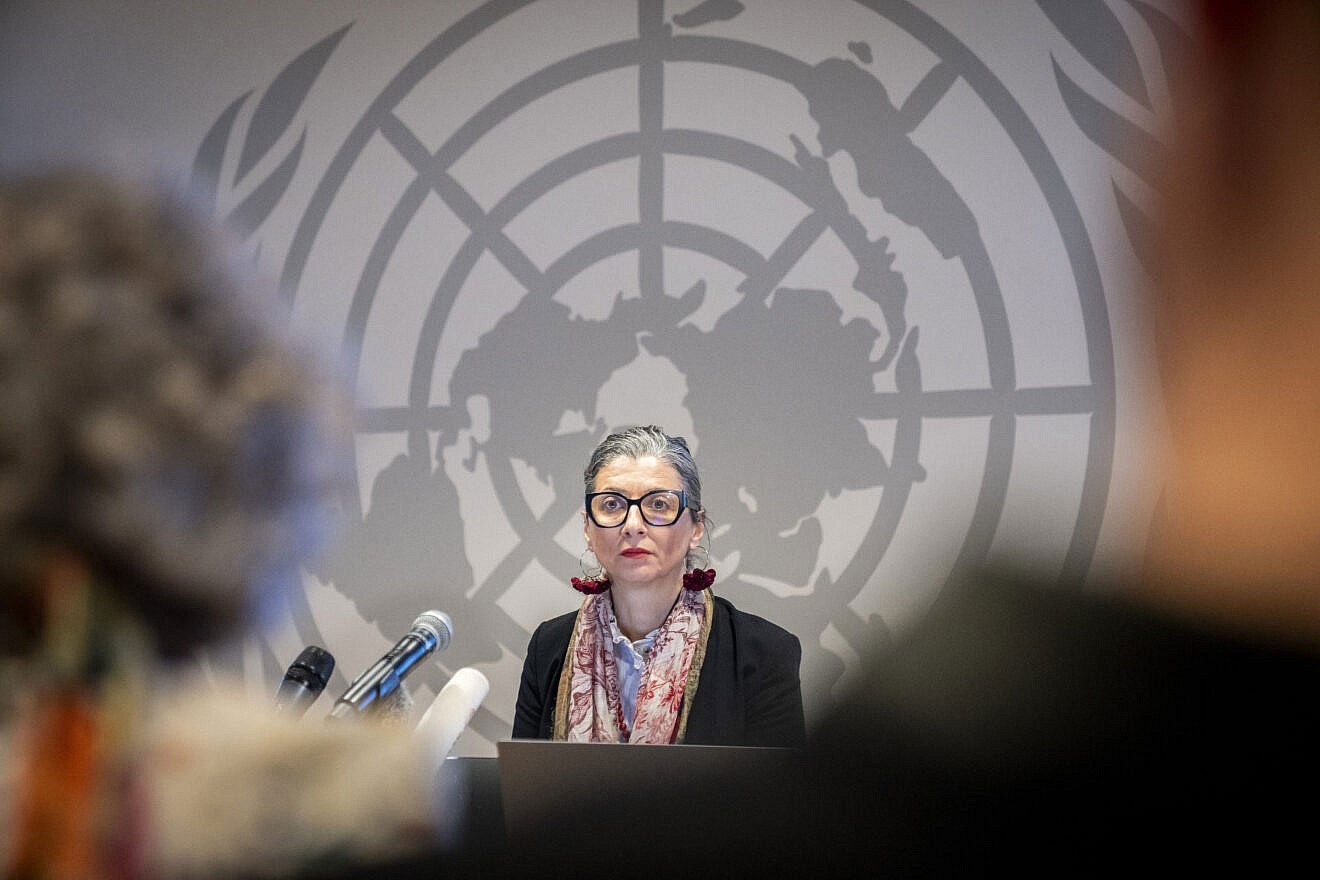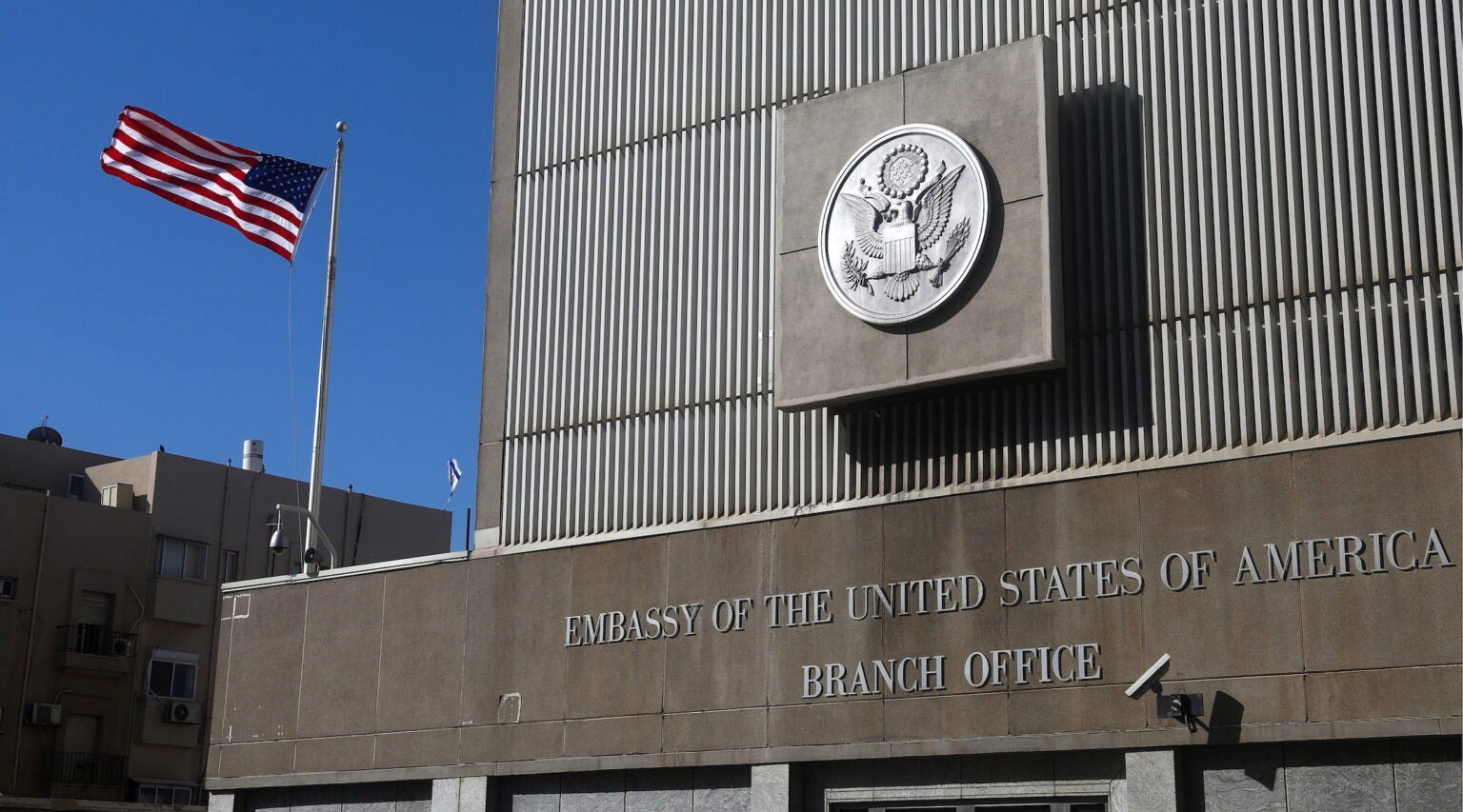Courtesy of JNS. Photo credit: Irish Ministry of Foreign Affairs
The Irish Parliament in Dublin
(JNS) — The Irish government has approved the drafting of legislation that would prohibit trade with Israeli communities in Judea and Samaria, marking a first for a European Union member state and exacerbating already strained ties between Dublin and Jerusalem.
The proposed law, brought forward by Tánaiste (i.e. Deputy Prime Minister) and Foreign Minister Simon Harris, would ban the import of goods produced in areas Israel liberated in the 1967 Six-Day War, Globes reported on Thursday.
“The government has agreed to advance legislation prohibiting trade in goods with illegal settlements in the occupied Palestinian territory,” a spokesperson for Ireland’s Foreign Ministry said on Tuesday.
Harris said, “When this small country in Europe makes the decision …, I do hope it inspires other European countries to join us.”
The legislation is expected to be based on the Occupied Territories Bill, first introduced by Sen. Frances Black in 2018. While that measure faced legal challenges over its compatibility with E.U. trade rules, a July 19, 2024, advisory opinion from the International Court of Justice stating that Israeli “settlements” violate international law has given the initiative renewed legal grounding. The heads of the new bill will be submitted for pre-legislative scrutiny in the coming weeks.
If passed, the law could impact companies such as Airbnb, which is headquartered in Dublin and may be compelled to remove listings for properties located in the disputed areas.
“The key issue will be whether the government provides a complete boycott of all trade with settlements in Israel, including both physical goods such as dates and oranges, and products from the services sector,” an Irish NGO spokesperson told the Financial Times.
The bill has gained traction amid widespread pro-Palestinian sentiment in Ireland, further intensified since the Oct. 7, 2023, Hamas-led attack on Israel and the subsequent war in Gaza. Despite the symbolic nature of the measure — trade between Ireland and Israeli “settlements” is minimal, totaling only €685,000 ($770,000) between 2020 and 2024 — the political implications are significant.
Harris framed the move as a modest but necessary step to uphold international law and pressure all parties toward a ceasefire in Gaza. “The scale of humanitarian disaster is almost unimaginable,” he said. “It is a war crime.”
Taoiseach, i.e. prime minister, Micheál Martin echoed that sentiment, citing “the indiscriminate bombing of innocent civilians” and calling for both a ceasefire and the release of hostages held by Hamas since its cross-border assault, in which Gazan terrorists killed some 1,200 people in Israel and abducted 251 others.
Israel reacted strongly to the Irish decision, accusing Dublin of singling out the Jewish state and aligning with extremist narratives. The relationship between the two countries has grown increasingly tense in recent months. In December, Israel closed its embassy in Dublin, accusing Ireland of applying double standards and dehumanizing the Israeli side. Foreign Minister Gideon Sa’ar at the time denounced President Michael D. Higgins as an “antisemitic liar” after Higgins criticized Israeli actions during a Holocaust Remembrance Day speech.
If enacted, the Irish law would set a precedent within the European Union, where trade policy is generally handled at the bloc level. While the E.U. recently initiated a review of its 1995 Association Agreement with Israel, Ireland would be the first member state to advance a national ban on goods from Israeli communities in Judea and Samaria.





